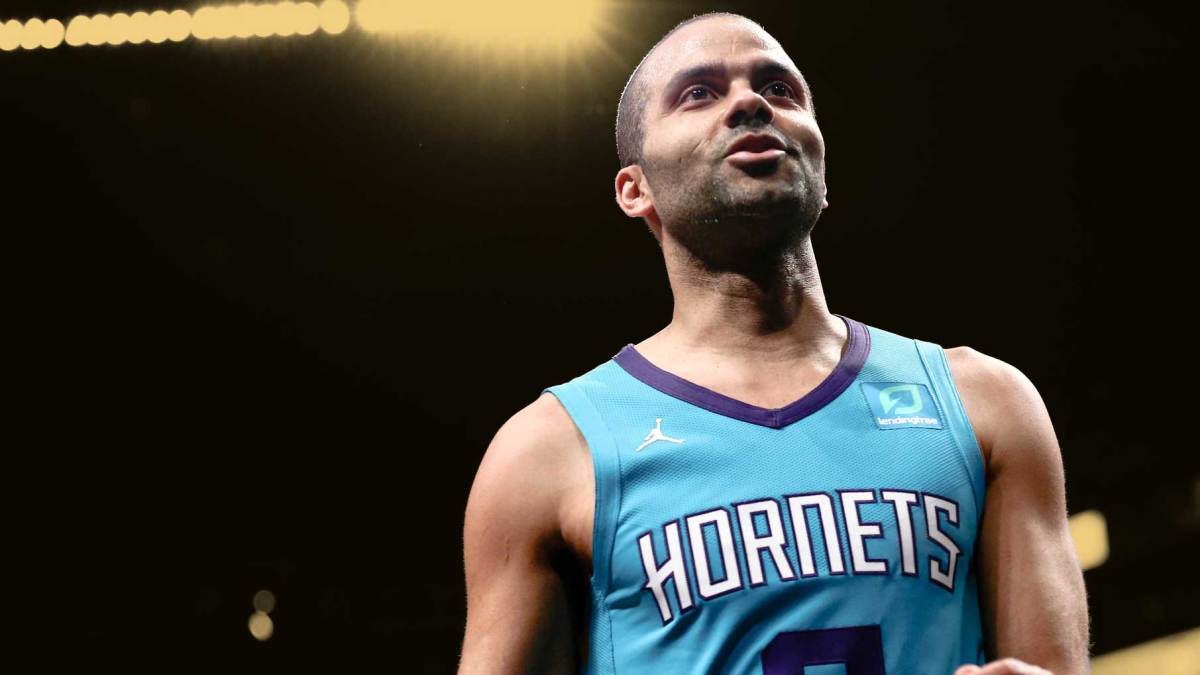“It’s very weird to arrive to a team and you’re like, ‘There’s no way we’re gonna win'” – Tony Parker on why playing in Charlotte made him retire originally appeared on Basketball Network.
Tony Parker had an eventful NBA career with the San Antonio Spurs. After nearly two decades of competing at the highest level, lifting four championships and crafting one of the most enduring legacies as a European-born point guard, the final chapter arrived in a setting that didn’t quite match the rest of the story.
Advertisement
His final chapter came in the mid-tier landscape of the Charlotte Hornets, a team struggling to define itself in a league increasingly built around superteams and big-market dominance.
No championship aspirations
Parker arrived on a two-year, $10 million contract with the Hornets in July 2018. After 17 seasons with the Spurs, this move felt foreign on every level. Charlotte was not a championship contender, nor did it pretend to be.
The franchise, still owned by Michael Jordan, had been stuck in a cycle of mediocrity for years, frequently finishing just outside playoff contention or barely scraping into the postseason only to bow out early. Even the presence of Kemba Walker, then their franchise cornerstone, couldn’t shift the balance of expectations.
Advertisement
“Every year that I started with the Spurs, I thought we really had a good chance to win the championship,” Parker said, reflecting on the shift. “So it was very weird to arrive to a team and you’re like, ‘There’s no way we’re gonna win a championship.’ Even if I had a great time… at the end of the day, I play basketball to win something and it’s been like that.”
Charlotte represented a place where development and long-term vision trumped instant contention. Parker’s arrival had more to do with leadership, mentorship and locker room presence than any real expectation of contending for a ring. The Hornets, coming off a 36-46 season, weren’t built for glory and the season Parker joined only saw marginal improvement.
Despite his professionalism and veteran presence, Charlotte finished 39-43 and missed the playoffs again. Parker had built his career on meaningful basketball, especially in the postseason; as such, the reality of not playing in May and June was jarring.
Advertisement
And after so many years of suiting up, knowing every game had postseason implications, stepping onto the court without that pressure or weight felt wierd.
Parker’s goodbye
There was no fallout in Charlotte, no bitter parting, and no headline-making tension. Parker respected the organization, connected well with teammates and handled his role professionally. But the absence of a championship environment made the experience feel hollow.
Advertisement
The fire that had fueled him since his teenage years, when he was running the floor in Paris and dreaming of the NBA, had always been stoked by the possibility of greatness, titles and legacies being written in real time.
When that was gone, the game began to change for him.
“If I don’t play for championships, I felt like, ‘Why are we playing?” Parker said. “That’s why it was very different for me mentally to get motivated to play a game that I love, because I want to win something.”
Advertisement
Parker played 56 games that season, averaging modest numbers in limited minutes behind Walker. It was far from embarrassing, but it wasn’t meaningful either, not in the way that driving to the rim in Game 5 of the Finals had been, or orchestrating the offense alongside Tim Duncan and Manu Ginobili under the intense gaze of Greg Popovich.
This version of the game lacked the stakes. And for Parker, that meant it lacked purpose. On June 10, 2019, less than a year after signing with Charlotte, Parker announced his retirement from the NBA.
He left with six NBA All-Star appearances, four NBA championships, and a Finals MVP award in 2007. More than that, he had helped define an era in San Antonio, serving as the offensive engine for a dynasty that prioritized ball movement and composure over flash and noise.
Advertisement
This story was originally reported by Basketball Network on Jul 26, 2025, where it first appeared.
